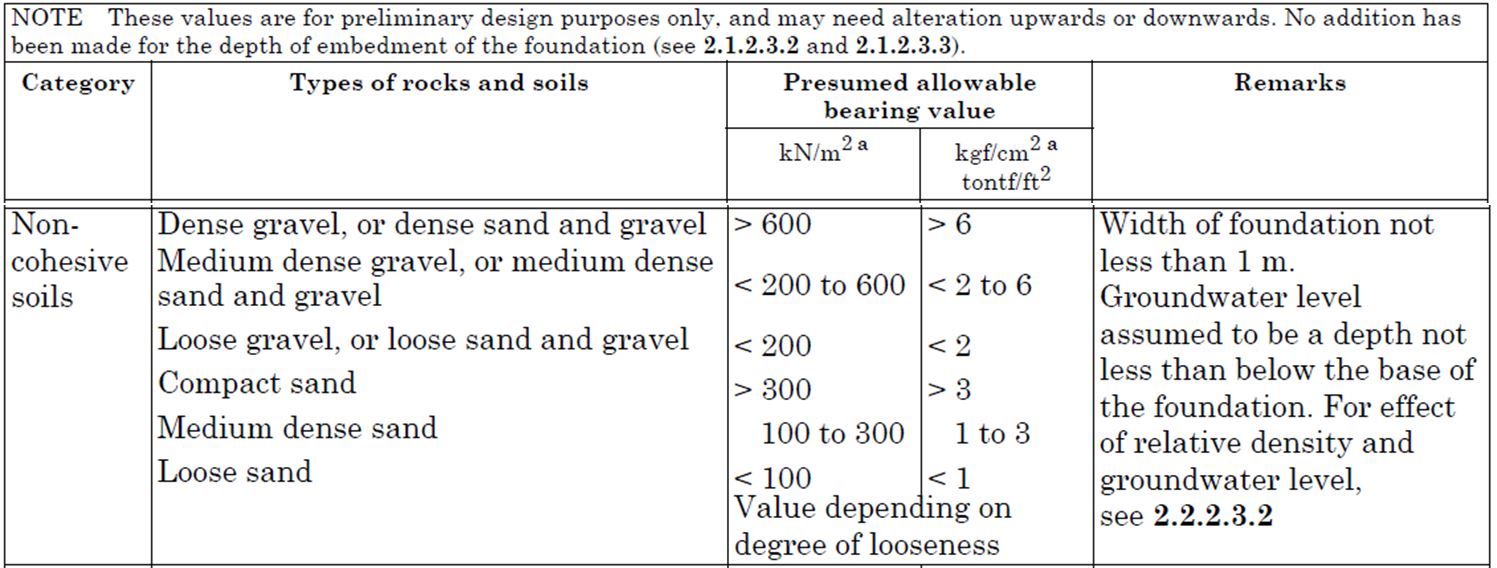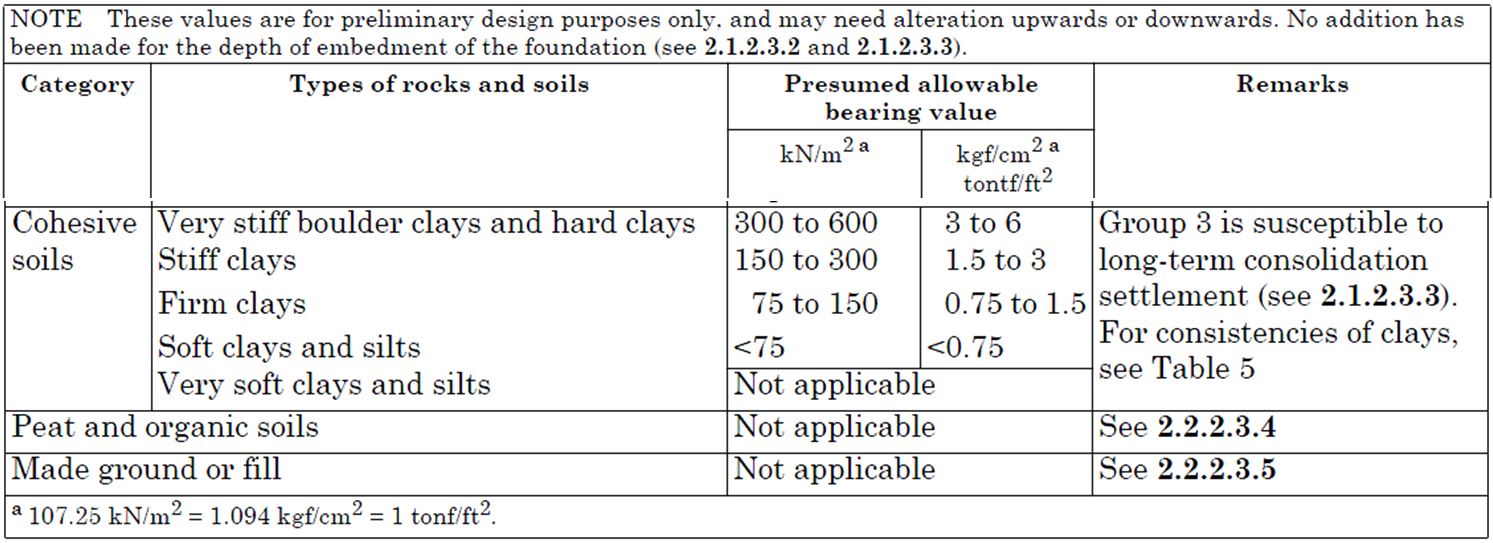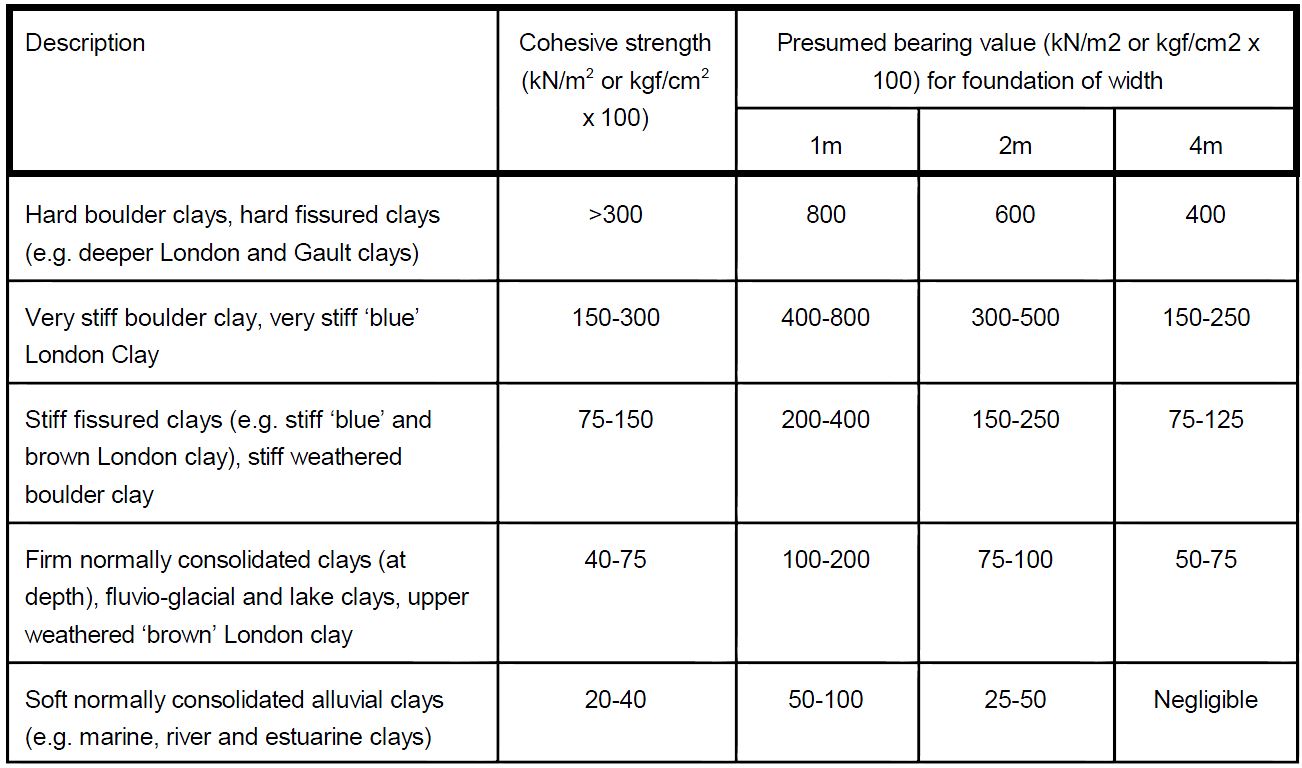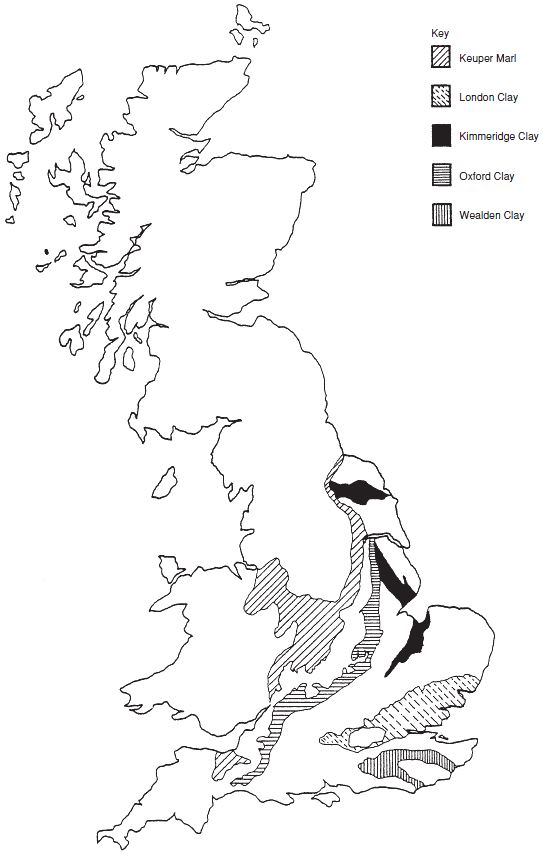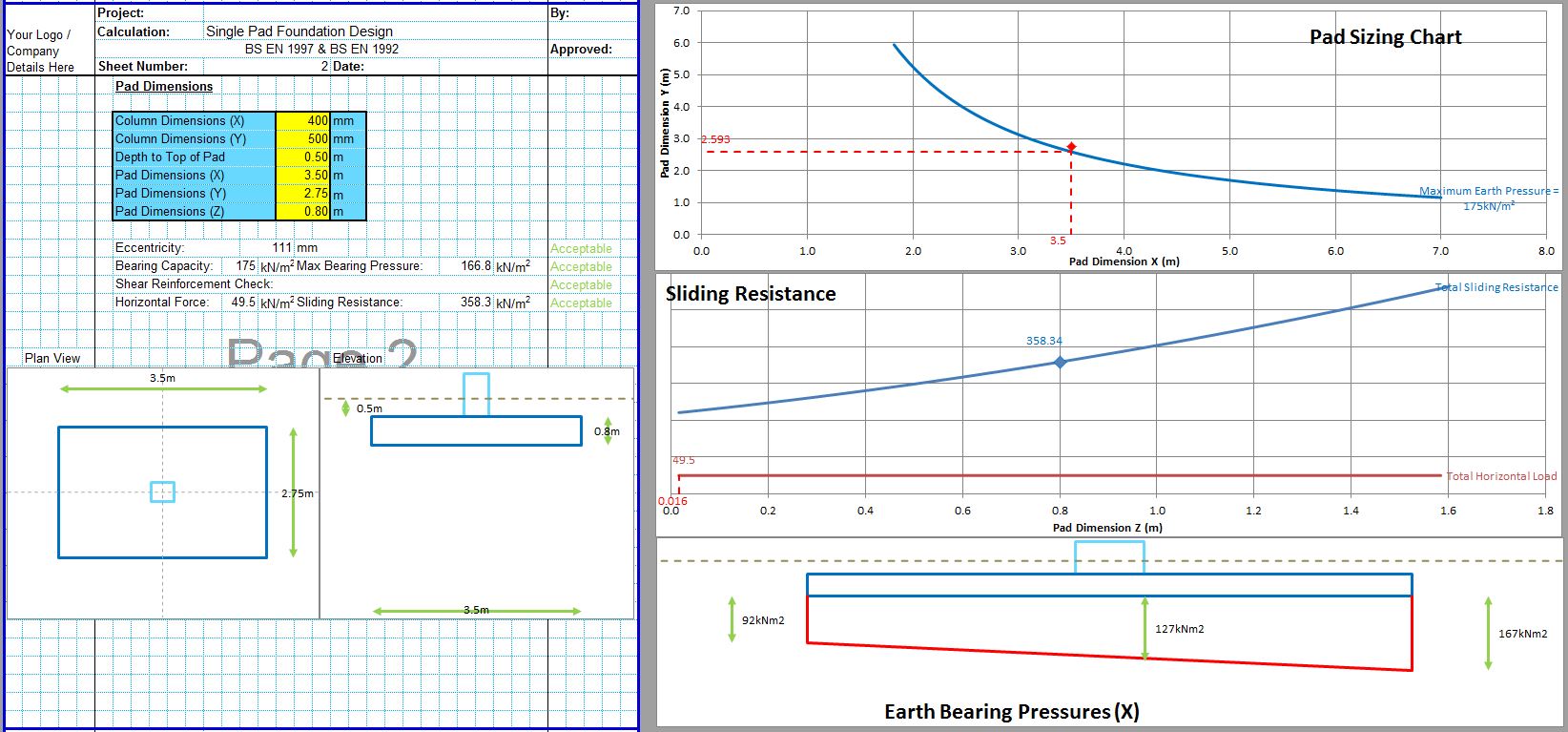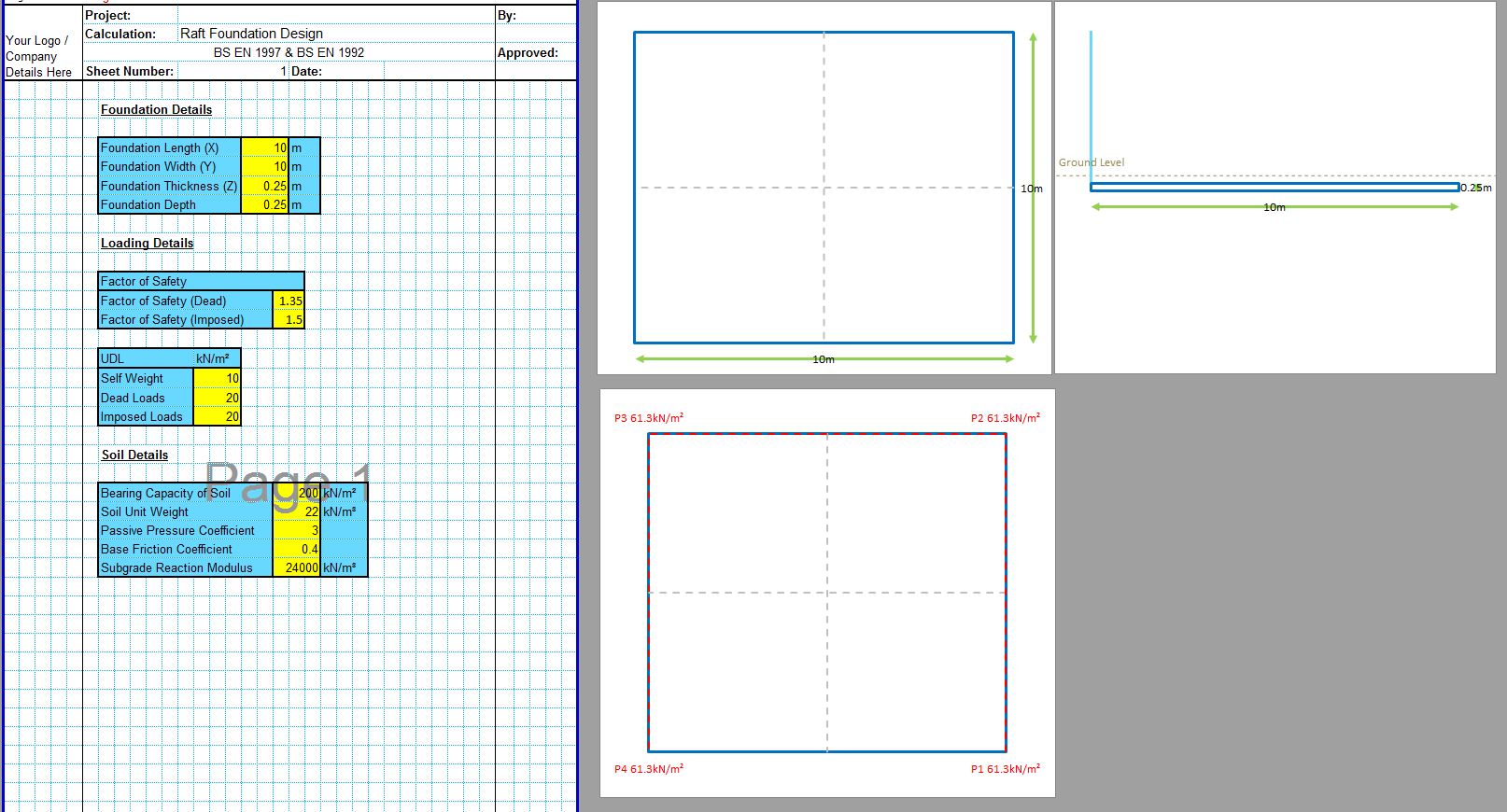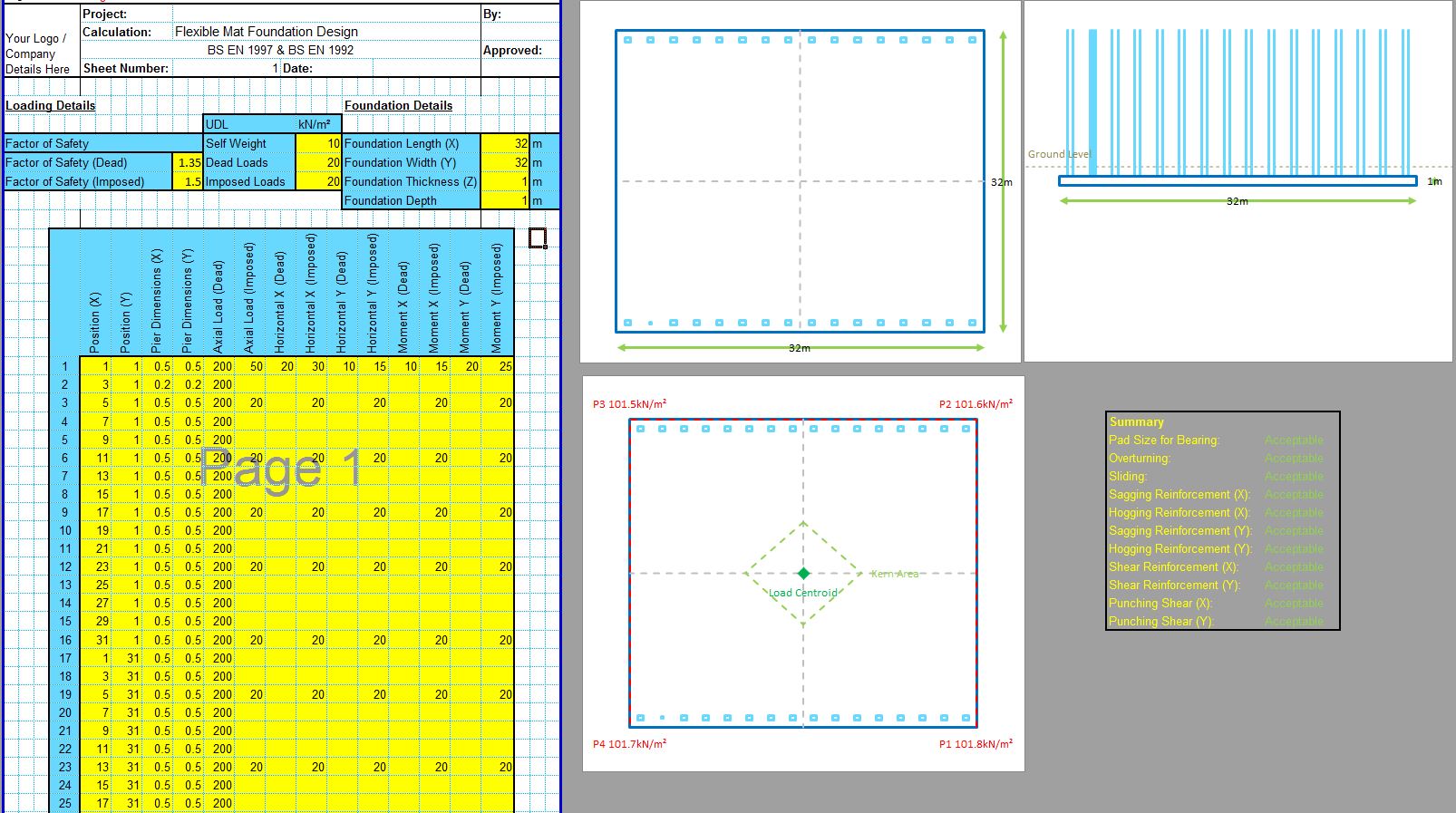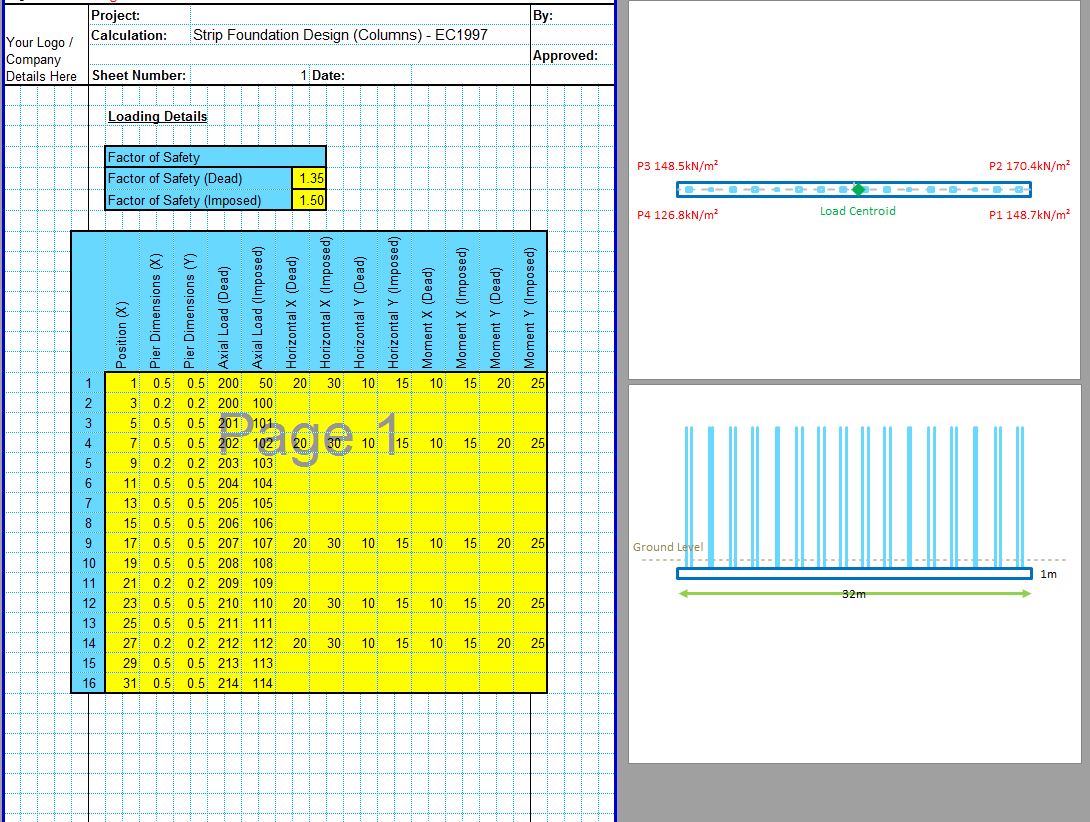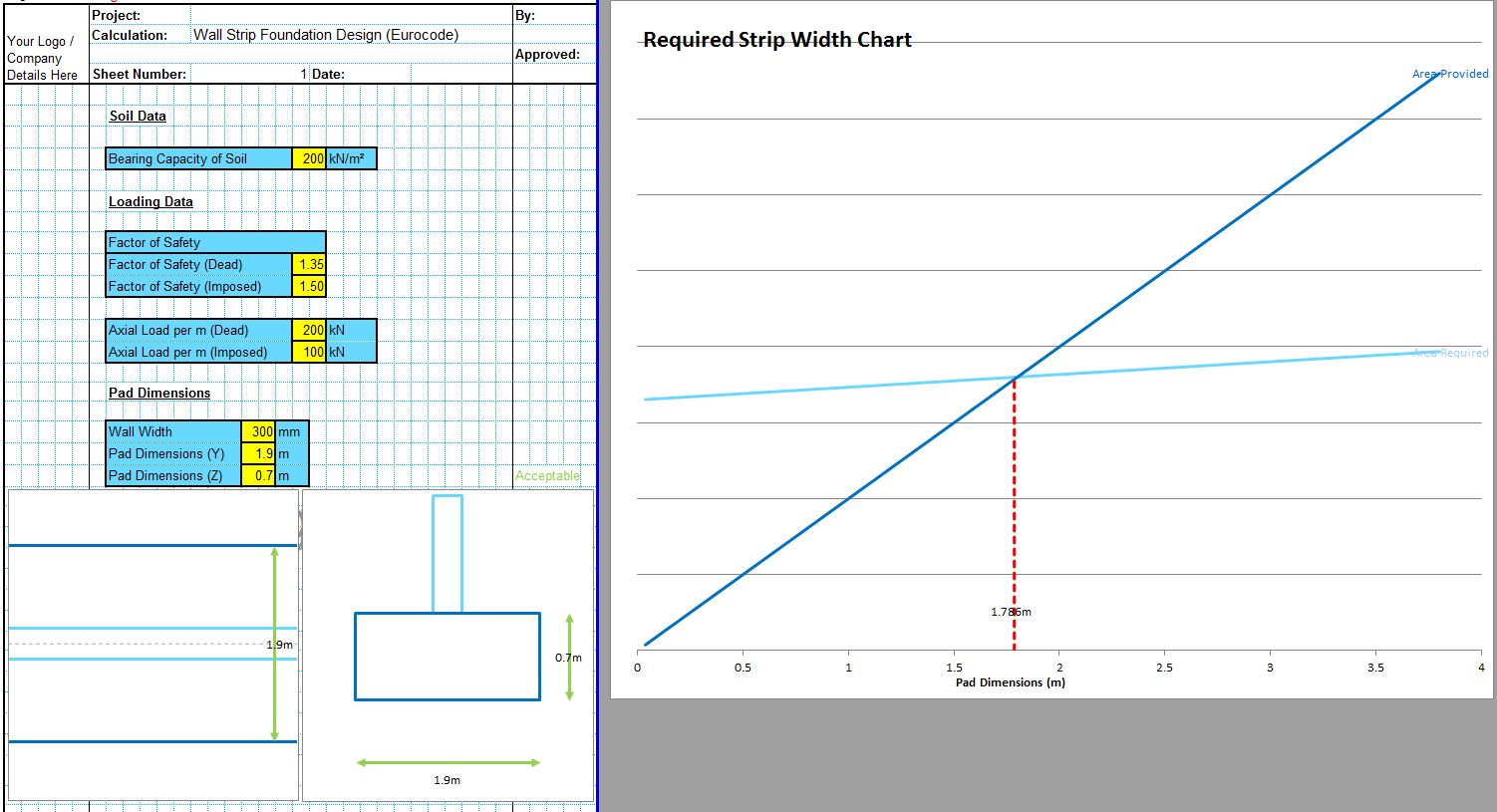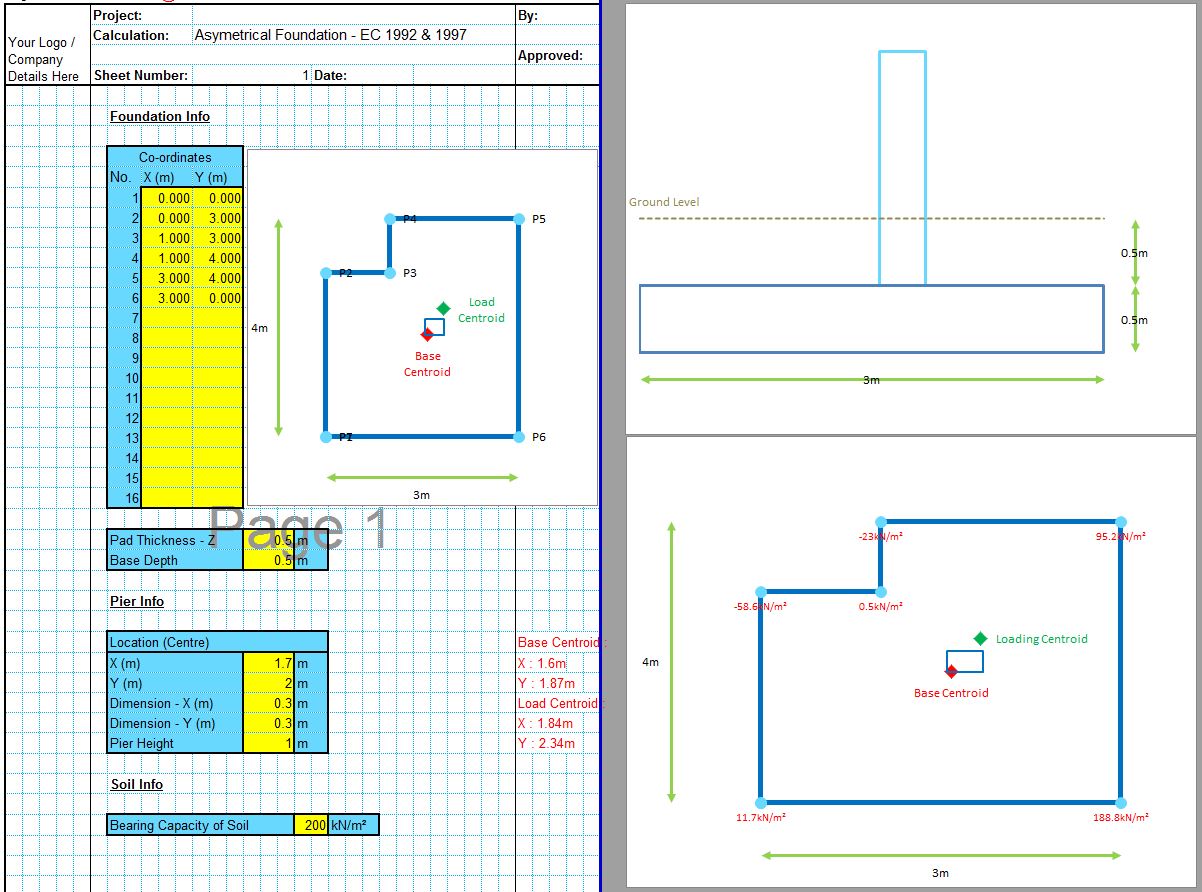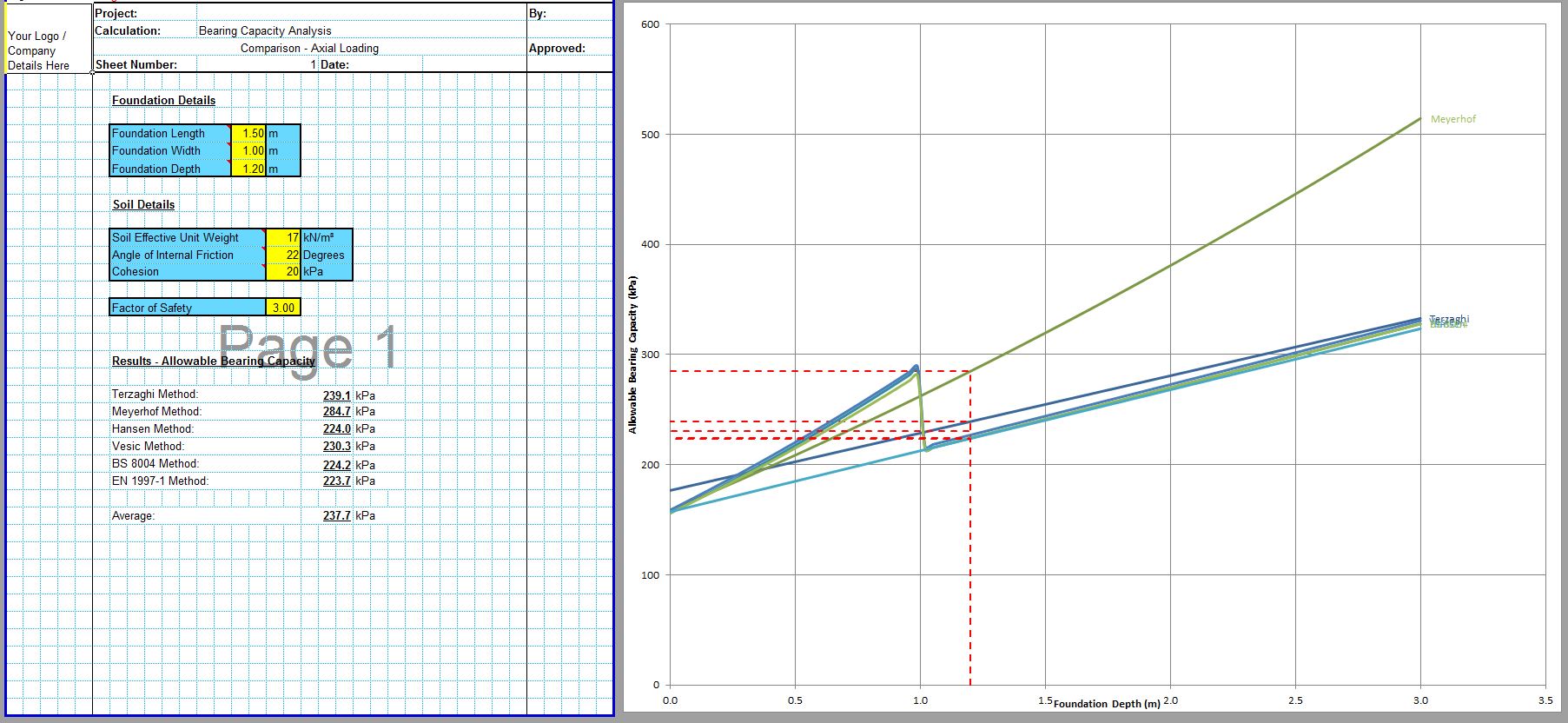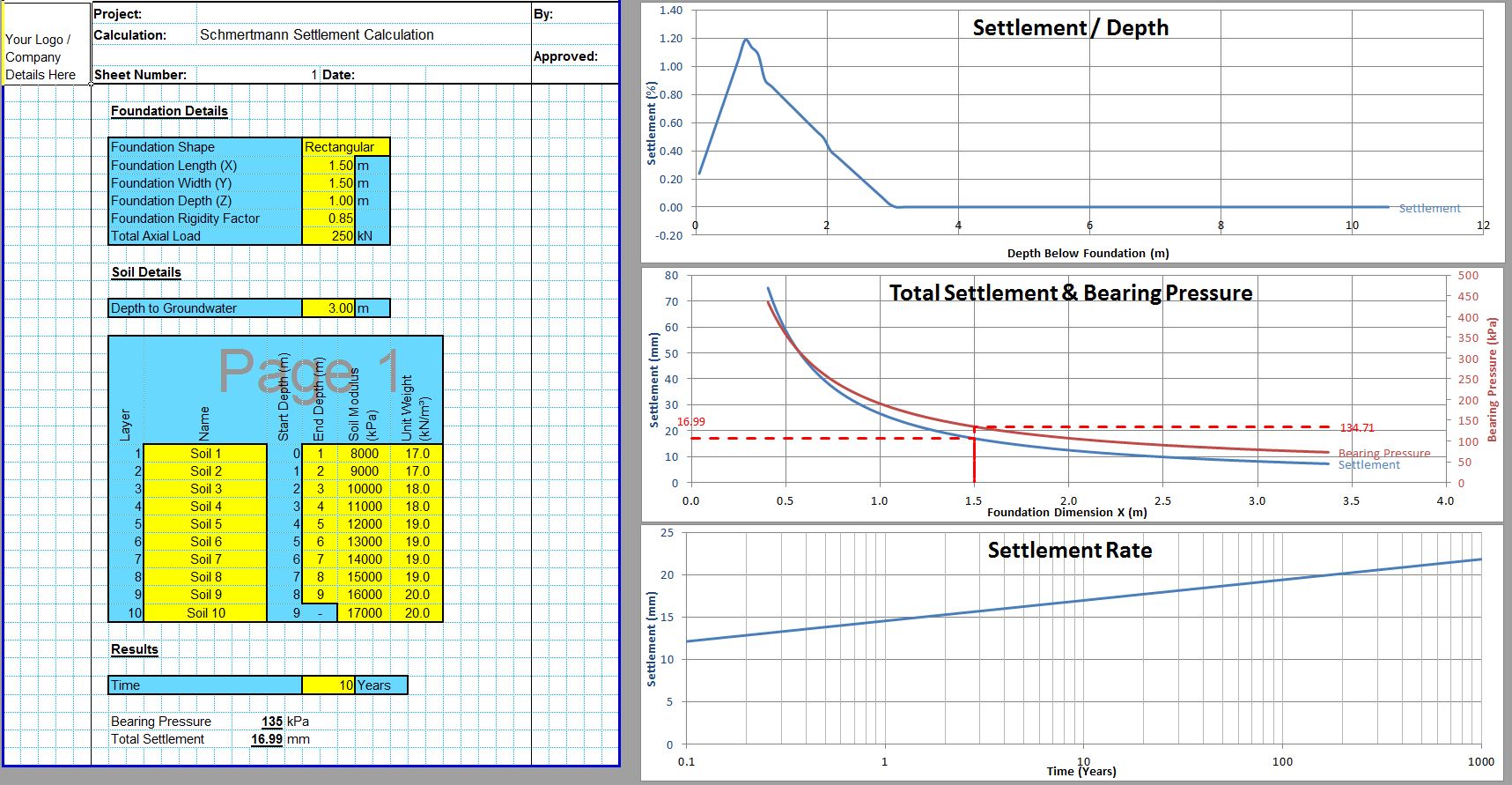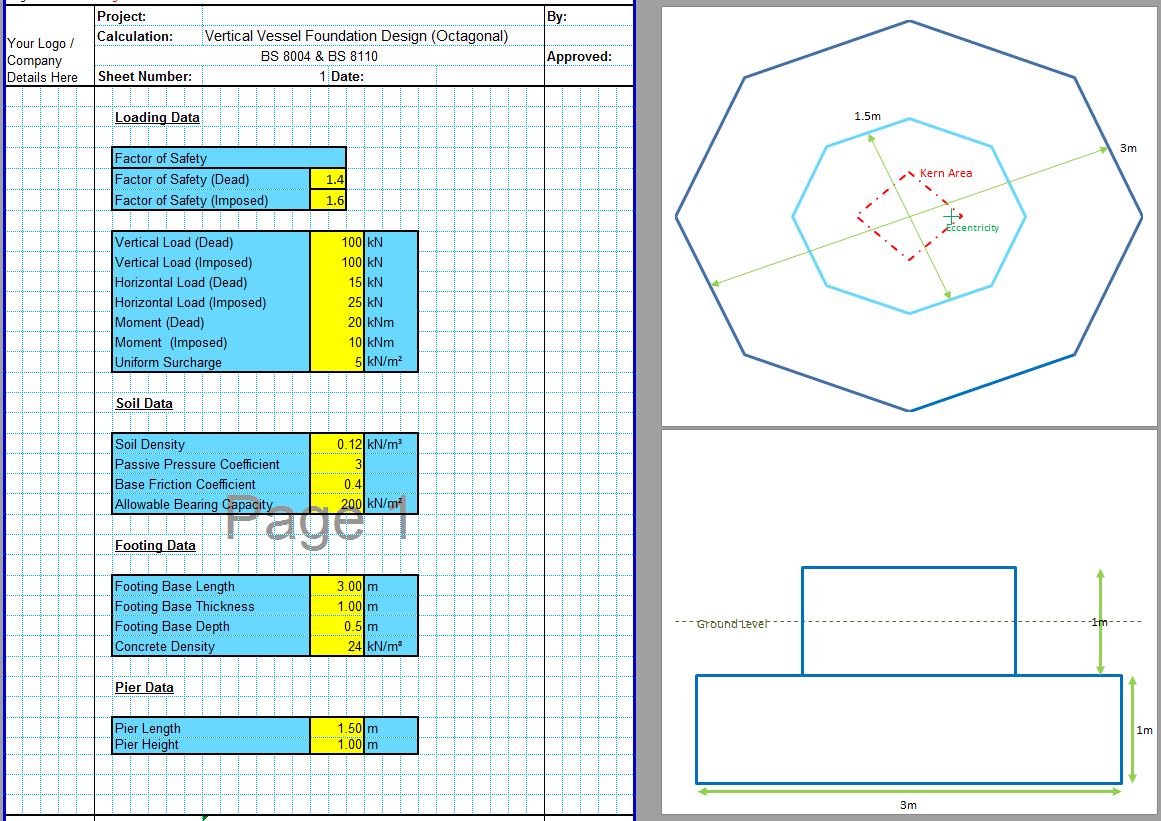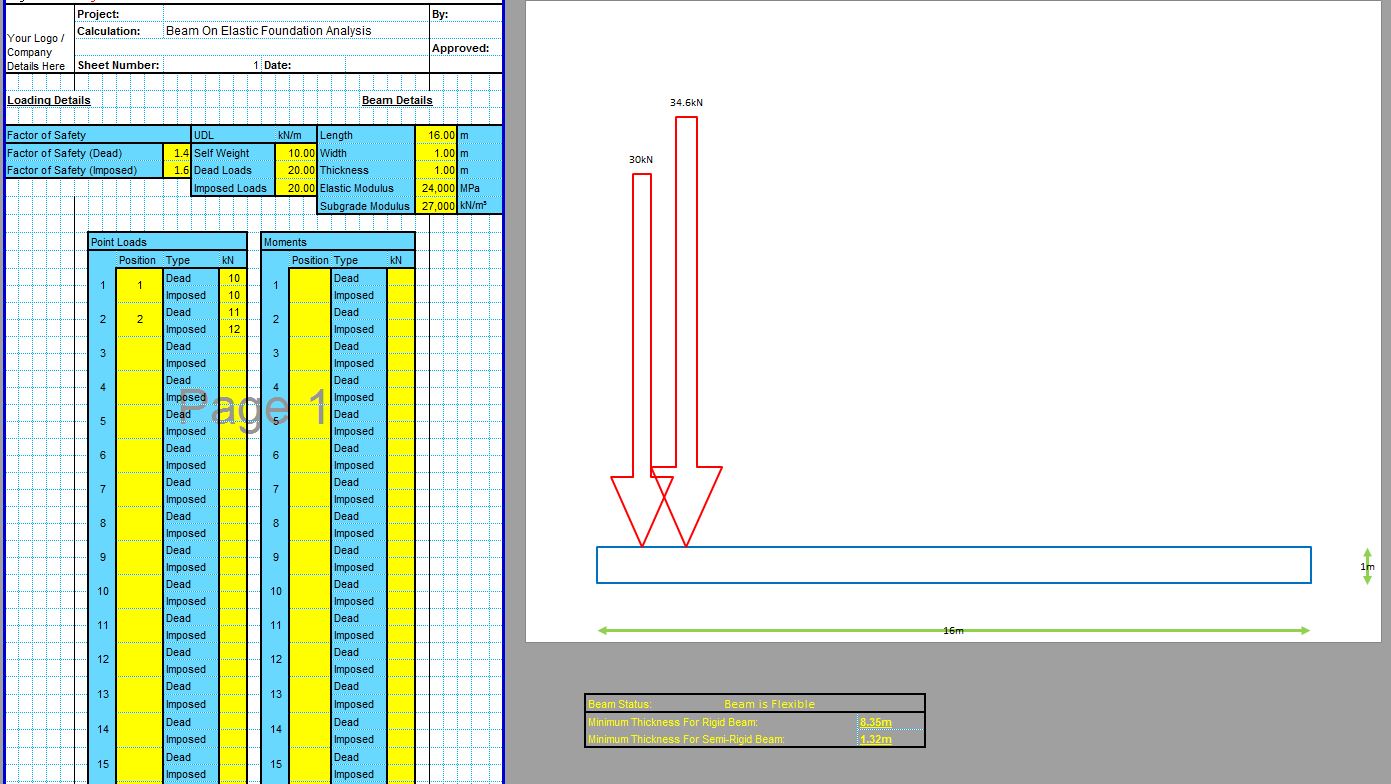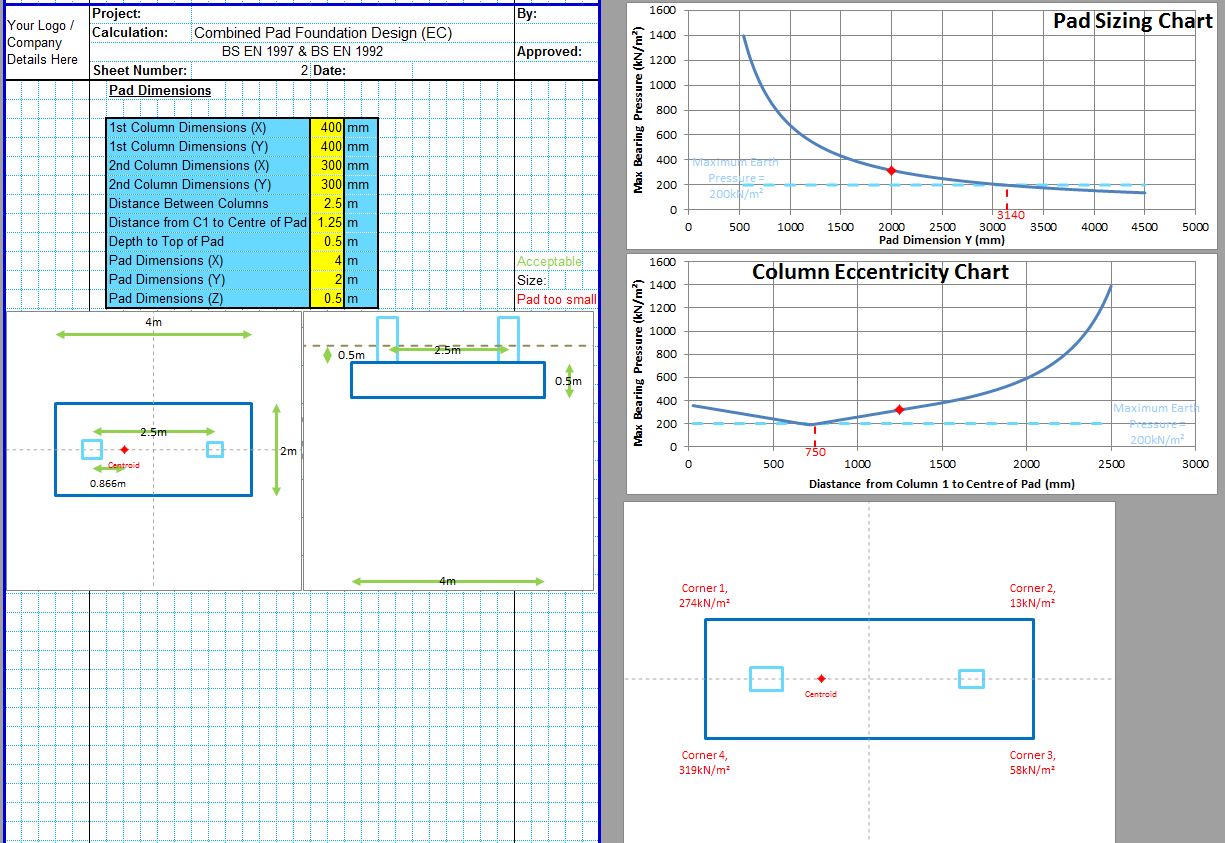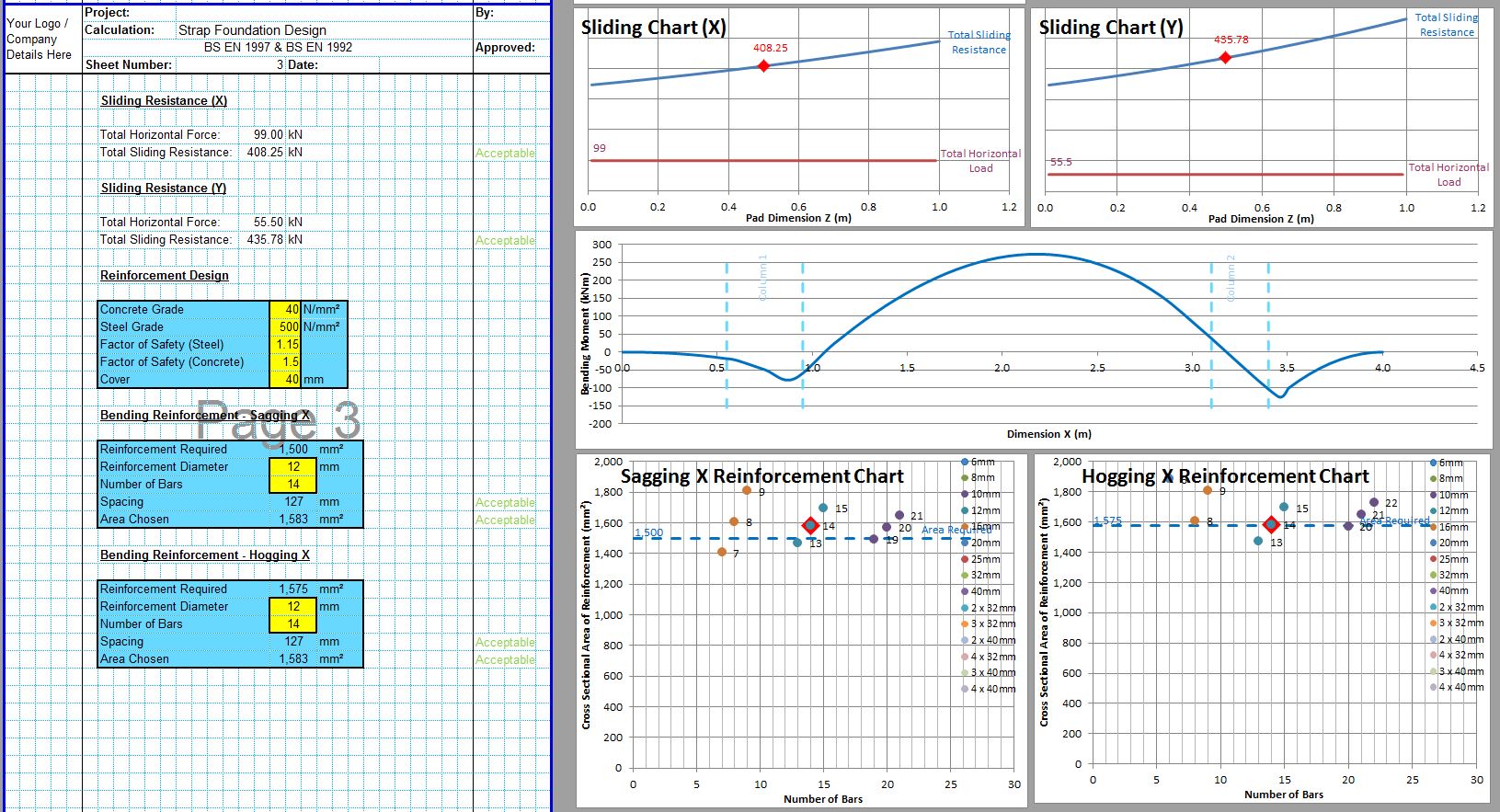Typical soil bearing capacity values are useful for preliminary and feasibility design. It is common for designers to be asked to complete preliminary or feasibility designs for foundations and other ground bearing structures before any detailed site investigation works have been undertaken. In these cases a complete bearing analysis is not possible so the designer must choose a typical soil bearing capacity to use for the initial design, before completing a more detailed bearing capacity analysis after the site investigation has been completed.
Our design software such as our Retaining Wall Design Suite and our Foundation Design Suite ask for a simple allowable bearing capacity so that the designer can choose a suitable value either from typical values or from a complete analysis. The CivilWeb Soil Bearing Capacity Calculation Excel Suite includes a 74 page Ultimate Design Guide to soil bearing capacities which includes a large range of typical bearing capacities of different types of soil from national standards and design guides. Then the CivilWeb Soil Bearing Capacity Calculation Excel Suite can be used to complete the detailed analysis when the site investigation information is available.
Typical Soil Bearing Capacities
For preliminary design it is often not possible to calculate the soil bearing capacity because no site investigation has taken place. Many publications have included bearing capacities of different types of soil and rocks for use in preliminary design.
Typical Soil Bearing Capacities – Cohesionless
The bearing capacities of cohesionless soils largely depend on the density and amount of lateral constraint. Many different typical values for cohesionless soils have been published based on soil descriptions. The designer should check any applicable national or international standards for guidance where appropriate.
Typical soil bearing capacity values based on the soil description were given in BS 8004-1986 which are presented below.
These values are expanded by Tomlinson to include indicative SPT values for the soil descriptions and an indication of how the allowable bearing capacity changes with wider foundations.
Typical Soil Bearing Capacities – Cohesive
The bearing capacities of cohesive soils are largely dependent on the stiffness of the soils. Note that even strong clay soils can be subject to large consolidation settlements in some conditions so a settlement analysis should also be undertaken.
Many national and international publications and standards have published typical allowable bearing capacities for cohesive soils. Any applicable standards should be checked for typical values. The following table is taken from BS 8004-1986.
The BS 8004-1986 values are expanded by Tomlinson which includes indicative cohesive strengths and an indication of how wider foundations affect the allowable bearing capacities of cohesive soils. This table is reproduced below.
Typical Soil Bearing Capacity - Special Cohesive Soils
Due to the unique origin and history of cohesive soils, there are many examples of particular cohesive deposits which behave in specific ways under loading. Local advice should be sought wherever these deposits are encountered. In the UK a number of large deposits of cohesive materials often underly building foundations. An explanation of the characteristics of the most commonly encountered cohesive deposits are given below.
London Clay
London Clay is an overconsolidated cohesive deposit which underlies greater London and a large area of the South East of England. It is commonly identified with a red, brown or greenish blue colour caused by the iron oxide present in the soil. London Clay has an estimated overconsolidation load of around 3,500kN/m2.
The depth of the clay varies but are often around 50m thick including underlying layers on top of the chalk bedrock. London Clay can have a high plasticity index and can be subject to high shrinkage in certain conditions.
The presumed bearing capacity of London Clay varies from around 100 – 200 kN/m2 for the firm brown clay and 200 – 400 kN/m2 for the stiff blue clay.
Kimmeridge Clay
Kimmeridge Clay is a stiff, heavy fissured clay deposit which can contain sulfates similar to London Clay and Oxford Clay. Kimmeridge Clay can be subject to high shrinkage or high swelling depending on conditions. The presumed bearing capacity of Kimmeridge Clay is around 150 – 300 kN/m2.
Oxford Clay
Oxford Clay is similar to London Clay and is found in thick deposits between Oxford and Cirencester, though it runs from the Humber estuary almost to the South coast. In the past Oxford Clays have been extensive used for brick production in the UK. The presumed bearing capacity of Oxford Clay is around 150 – 300kN/m2 for stiff deposits.
Wealdon Clay
Wealdon Clay is found in the region known as the Weald between the North Downs and the South Downs. The deposits runs in a cresent shape from Eastbourne to Horsham and then onto Hythe on the South coast.
CivilWeb Soil Bearing Capacity Calculation Excel Suite
The CivilWeb Soil Bearing Capacity Calculation Excel Suite comes complete with a 74 page Ultimate Design Guide which includes a large variety of published typical soil bearing capacity values based on national standards, design guides and academic articles. This provides the designer with all the information required to choose an assumed maximum allowable bearing capacity for any soil. Then the CivilWeb Soil Bearing Capacity Calculation Excel Suite can be used to complete the detailed bearing capacity analysis from either onsite testing or laboratory testing when this information is available.
Buy the CivilWeb Soil Bearing Capacity Calculation Excel Suite now for only £20.
Purchase the our Soil Bearing Capacity and Settlement Calculation Bundle for only £25.
Or buy our best value bundle, the full Foundation Design Suite including all 12 of our foundation design spreadsheets at a discount of 80%.
Download Free Trial Version
To try out a fully functional free trail version of this software, please enter your email address below to sign up to our newsletter.
Other Foundation Design Spreadsheets;
Foundation Design Spreadsheet Suite
Our full Foundation Design Suite includes all 12 of our foundation design spreadsheets for only £50 (80% discount).
